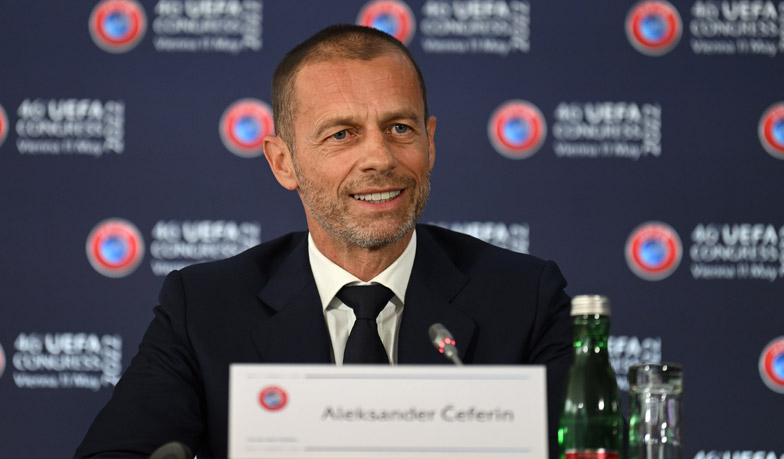UEFA has announced changes to its premier competition, the Champions League, starting from the 2024/25 seasons. Among the modifications is a longer group stage which follows a “Swiss model” and four more competition slots.
UEFA confirmed it was in agreement with the relevant groups regarding substantial changes in their European competitions: the Champions League, the Europa League, and the Europa Conference League. Starting from the 2024/25 season the three UEFA competitions will be altered structurally, with the group stage modified and the more teams added.
First, and the most notable of changes, is the removal of groups in favor of one big league, in which all teams – including those from the same federations – will be eligible to play each other. Under this “Swiss model”, the number of matches before the knockout stages will increase from six to eight – eight in the Europa League and six in the Conference League – with each team playing four home and four away games.
The top eight sides at the end of the first round will move directly into the round-of-16, while those ranked ninth to 24th will participate in a two-legged play-off to determine who advances.
Furthermore, the number of teams entering the final phase of the competition – the main tournament itself – will increase from 32 to 36. Two of the four new slots will be given to nations with the best collective performances the season before, with the much-maligned idea of “legacy spots” scrapped off. The third new slot will go to the third-ranked team in the fifth-best federation, while the final berth will be awarded to a team that enters the competition through the “Champions Path”.

Speaking on those changes, UEFA President Aleksander Ceferin had this to say:
“UEFA has clearly shown today that we are fully committed to respecting the fundamental values of sport and to defending the key principles of open competitions, with qualification based on sporting merit, fully in line with the values and solidarity-based European sports model.
“We are convinced that the format chosen strikes the right balance and that it will improve the competitive balance and generate solid revenues that can be distributed to clubs, leagues, and into grassroots football across our continent while increasing the appeal and popularity of our club competitions,”


